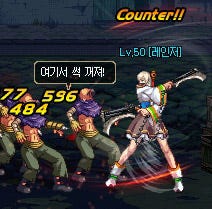Trending
Opinion: How will Project 2025 impact game developers?
The Heritage Foundation's manifesto for the possible next administration could do great harm to many, including large portions of the game development community.
How does the government regulate video games? Researcher Clark looks worldwide for perspective on U.S. game censorship, addiction, and piracy law in an Obama administration.

[How does the government regulate video games? Researcher Clark looks worldwide for perspective on U.S. game censorship, addiction, and piracy law in an Obama administration.]
Video game regulation. The words leave a sour taste for most of the people who work with and play video games. The sour faces shouldn't be too surprising when politicians say things like, "I want to restore values so children are protected from a societal cesspool of filth, pornography, violence, sex and perversion," (Mitt Romney-R).
Most non-gamers, be they our friends, family members or elected officials, may not be jumping to dismiss games like Romney, but it's common enough that they don't quite get it.
Many see games as trifles, kid's stuff; and yet for all the talk that we journalists and researchers talk about breaking molds and making new genres of games, at the moment there's already a unique diversity and depth in today's video games. A fish doesn't know that he's in water.
While media technologies aren't cesspools, they are introducing radical new changes in the way society works -- from how we get our information, to how we interact with friends and co-workers.
Some games change society on a deeper level, placing, say, Chinese nationals in the same social spaces as American, French, and Israeli nationals. Government regulation fast becomes a dicey and complicated proposition. Why things are regulated certain ways, and what that says about the future, is far from simple.
"This is an area of law that's evolving so fast anything I say will be obsolete by tomorrow," says law professor Joshua Fairfield, half-joking.
Fairfield, an associate professor of law at Washington and Lee University, sees the legislation in the United States as falling into two major categories: one is protecting children, especially from pornography; the other deals with law enforcement and surveillance.
 "There's an absolute imperative that we protect kids from predators. And, on the other hand, for at least the legal profession, we have to do this in a way that does not threaten free speech. Meeting these requirements means that we need to try a lot of laws on. You're going to see people experimenting with laws."
"There's an absolute imperative that we protect kids from predators. And, on the other hand, for at least the legal profession, we have to do this in a way that does not threaten free speech. Meeting these requirements means that we need to try a lot of laws on. You're going to see people experimenting with laws."
He uses the example of puzzle pieces, expecting many governments to try on new kinds of laws in order to see what fits.
In 1996, the United States had its first taste of that process with the Communications Decency Act (CDA), a part of the Telecommunications act of 1996.
It was held unconstitutional when it tried to ban the use of any interactive computer service trying to display to anyone under the age of 18, "any comment or suggestion found offensive by community standards."
Next to target Internet pornography was COPA, the Child Online Protection Act. It too was blocked from taking effect. Protecting children is, as Fairfield suggests, imperative. But doing so via large-scale measures is often beyond the understanding, if not also the power, of any regulating body.
"I don't think people [regulating content] are rabidly anti-game or pro-game," says Fairfield. "They don't understand games." Especially, he says, the problems inherent to user-generated content. One of the major problems with applying Congress's prior attempts to regulate the Internet to gaming, he says, is that, "These statutes were largely aimed at standard pornographers."
"Laws aimed at keeping children from seeing anything indecent fit poorly with rough-and-tumble virtual worlds. Your average Barrens chat might get you in trouble if a kid sees it, under current laws." Fairfield, referencing an area in Blizzard's World of Warcraft known for inane, sometimes perverse conversation, points out that any game going online presents anonymity to children and a license to be lewd to all.
While the right puzzle pieces for national child protection laws are probably a long way in the future, statewide laws attempting to paint games as outside the first amendment are quickly becoming a thing of the past. It's not necessarily that government officials have had enlightening tastes of Rock Band or Fallout 3. It's that their cracks at video game legislation have their administrations and states hemorrhaging funds.
The ESA has been knocking down state laws, specifically in Illinois, Michigan, and Louisiana, put in place for regulating the sale of video games to minors. The ESA has yet to lose a case, and in a press release they reported that to date these states have had to pay out to them over 2 million USD in attorney's fees.
"Legislators are beginning to realize that they are beating their heads against the wall," says Dennis McCauley, Editor of the ECA's GamePolitics.com blog.
But, he continues, legislating away video games will always be an appealing proposition for one lawmaker or another. We haven't seen the last of these hard-tipped bills, but nor is every legislative attempt pure pandering.
Quite a few lawmakers and states are genuinely concerned but, says McCauley, they're starting to understand that reiterations of the laws first written for Louisiana and Utah by Jack Thompson don't work. As they're written, they aren't constitutional.
What, exactly, constitutes the unconstitutionality? The tanked Louisiana bill had tried to paint certain games as "patently offensive," or against "contemporary community standards." Specifically, it attempted to make illegal the sale, rent or lease of games to minors should they meet three major criteria:
The average person, applying contemporary community standards, would find that the video or computer game, taken as a whole, appeals to the minor's morbid interest in violence.
The game depicts violence in a manner patently offensive to prevailing standards in the adult community with respect to what is suitable for minors.
The game, taken as a whole, lacks serious literary, artistic, political, or scientific value for minors.
Recently, the 9th US Circuit Court reviewed California's violent games bill, penned by Leland Yee (D). Though it was held back by an injunction in 2005 and struck down in 2007, neither side seems ready to back down. It looks very possible, if not probable, that this particular bill will go all the way to the top.
Says Dennis McCauley, "In a way I'd kind of like to see that California case get to the Supreme Court -- then we'd have a decision once and for all."
In other parts of the world, games regulation has other influences.
"Where in the United States we've tended to take the free market, freedom of contract approach," notes Joshua Fairfield, "other countries are saying 'Mmm, not so much. There are public concerns here and we're going to do some public regulation.'"
 In South Korea one branch of the government, the Ministry of Culture and Tourism (MICT), operates a governmental agency that both regulates and promotes the gaming sector: the Korea Game Industry Agency (KOGIA).
In South Korea one branch of the government, the Ministry of Culture and Tourism (MICT), operates a governmental agency that both regulates and promotes the gaming sector: the Korea Game Industry Agency (KOGIA).
Though the Ministry of Health and Policy still jumps in to take a regulatory stance in some cases, the lines between policy agendas are subtle.
For instance, while KOGIA promotes Korean gaming industry at home and abroad, it also maintains a Center for Internet Addiction (Internet Addiction is a buzzword often used synonymously with gaming addiction).
As one of the world's hubs for online games, the Korean government is perhaps the most proactive in trying at the subtleties of regulating them.
The early history of gaming regulation in Korea centered on the illegal, underground arcades. Promotion of the gaming industry, which revolved around Japanese arcade games, wasn't exactly a national priority.
"It is fairly interesting," notes Jun-Sok Huhh, a Lecturer and Grad Student at Seoul National University, "in that government denied or disregarded the gaming sector. Before around 1997, no Japanese culture could be imported legally."
The Asian economic crisis changed the way the Korean government approached games. In part, Bangs -- PC gaming rooms -- grew in popularity among the droves of newly laid-off workers because during the crisis they provided a livable income. Some of the reasoning behind that, however, was that the government was providing subsidies to new Bang owners.
Between around 1997 and 2002, subsidies for broadband Internet access made owning a Bang one of the most financially attractive forms of self-employment.
The results are evident on every street in South Korea: the Bang exploded. Bangs, in turn, were an important contributor for leading Korea from the economic crisis in the late nineties.
While there's a certain awareness and respect for the cultural and economic importance of the gaming sector, that same culture creates other unique regulatory concerns.
As online gaming continues to grow, it has rekindled worries over gaming's potential negative effects.
In the early 2000s, the media began giving an immense amount of publicity to the deaths of young South Korean gamers.
Among other sweeping cultural changes, South Korea's Office of the Prime Minister and Policy agency set up four commissions to explore the phenomena of "Internet Addiction."
While the Korean government can now boast one of the most culturally informed and balanced measures for understanding the health effects of gaming, the K-scale, at present there's new pressure from parents and Korean experts to regulate minors.
Parents are actually calling on the government for the power to "abolish" online gaming accounts for their children under the age of 18. Huhh sees the generational gap between frustrated parents and players as just one side of the issue in South Korea.
"More profoundly," he says, "In Korea, you can find a place for online gaming anywhere."
Even savvy and involved parents can find it impossible to control their children's usage. In Seoul there's at least one PC room on every street -- oftentimes many more. Huhh says that right now, officials are considering different ways of limiting children's play.
 Makers of the Korean arcade-style MMO game Dungeon & Fighter have actually imposed limits on how much monster killing, any single player can undertake in a single day.
Makers of the Korean arcade-style MMO game Dungeon & Fighter have actually imposed limits on how much monster killing, any single player can undertake in a single day.
When asked if the 100-minute-per-day limit hurt the game's image, Huhh remarked, "Ironically, this policy contributes to the popularity."
Other issues are not so well received.
China, while the biggest overseas market for the Korean industry, is a hotbed when it comes to IP issues. Some of the most popular Korean games, Lineage, Mu, Ragnarok, Kart Rider and Audition, are being hacked and set up illegally in China.
While piracy, royalty payments and private servers are hot issues between the two countries, the regulation of gold farming is taking unique turns.
What's interesting about the Korean take on gold farming isn't that some are for or against it, but that groups are lobbying the Korean government.
While in countries like China, the majority of the legislating and enforcement comes from the top, countries like Korea sport a sophisticated and policy-minded gamer public.
"In South Korea you have a more politically aware gamer than in the states," says Joshua Fairfield. "Gamers in the U.S. are gamers second. They're usually something else first... You don't hear about pro-gamer legislation."
Though politically aware gamers around the world have always held an important sway on regulatory issues, this last U.S. election proved Fairfield right.
However American gamers might have identified themselves politically in this last election, some of the strongest critics to the industry won reelection to the House and Senate handily. Issues like abortion, the war in Iraq and gay marriage still trump the gaming hobby. Go figure.
In the United States, most of the lobbying and legislation has favored the American Intellectual Property industry.
"The IP war is just as big as the drug war," says Fairfield. "Right now we have cabinet-level positions for fighting IP piracy... There's nothing strange about that. Entertainment industries get to lobby congress, but we shouldn't be surprised when they get what they want."
"The IP issue is definitely going to be a huge battleground, ultimately more significant than the content legislation," says Dennis McCauley. "While I think consumers and video game industry are on the same side on the content -- they're probably not on the same side on all aspects of IP protection."
There are some obvious examples, as with gamer reaction to the SecuRom DRM embedded in Electronic Arts products, including the Spore Creature Creator and The Sims 2. After the thousands-strong public outcry over EA's inclusion of the SecuRom DRM, other publishers using SecuRom and similar services have all but tiptoed around the issue.
"PC games seem to cause a lot of anxiety on the part of publishers for what they see as piracy," says McCauley. "It's concerning for those of us that enjoy PC games. You almost get the impression publishers are either trying to drive everyone to consoles -- where they have control -- or some subscription model. I certainly don't condone piracy. I don't think that responsible people do."
But he wonders at the lines the industry will ultimately draw as a whole.
 "I was really concerned with how the industry was handling piracy in the summer of 2007, when the industry, the ESA, conducted an operation with Immigration and Customs Enforcement (ICE)... and raided 32 people in 16 states looking for mod chips. Yes, mod chips have applications for piracy, but possibly also for homebrew gaming. It seems heavy handed to me to have federal agents kicking down doors over mod chips."
"I was really concerned with how the industry was handling piracy in the summer of 2007, when the industry, the ESA, conducted an operation with Immigration and Customs Enforcement (ICE)... and raided 32 people in 16 states looking for mod chips. Yes, mod chips have applications for piracy, but possibly also for homebrew gaming. It seems heavy handed to me to have federal agents kicking down doors over mod chips."
He continues, emphasizing that though the ESA gave these busts a lot of publicity at the time, none of the defendants are giving any details.
"What's fascinating is that we're more than a year beyond that and all of those cases are still sealed in federal court... This is America, what's going on here? You kick down 32 doors over mod chips more than a year ago and it's still a big secret?"
There are other places where standard protections offered American citizens are taking turns that are legally both troubling and troublesome.
At present, MMO game and virtual world publishers can be subpoenaed for all types of information through the Stored Communications Act and the Communications Assistance for Law Enforcement Act. Getting those subpoenas sometimes doesn't even require law enforcement to meet standards for probable cause under the fourth amendment.
Joshua Fairfield says, "If you think about what the government has to do in order to set up a wire tap on your phone, they have to jump through some fairly restrictive hoops. Now they don't have to do that. They can just let the game god do that, then [under the Stored Communications Act] send them a subpoena... They send a letter to Blizzard, 'Everything this person has said, just hand it over.' I think that's pretty darned disturbing."
Fairfield also points out combinations of laws, which, when put together make for strange outcomes. The biggest of these, for video games, is the Computer Fraud and Abuse Act.
In short, gaining unauthorized access to someone's computer and doing $500 in damages opens you up for criminal charges. It's good for prosecuting hackers, but it makes for a strange fit with social networking websites and user-generated content.
That fit was especially strange when prosecutors weren't quite sure how to approach the widely publicized case of Meghan Meier. The 13-year-old Meier committed suicide after being deceived and bullied by another girl and her mother, Lori Drew.
Unable to find a good way to approach the issue, prosecutors charged Drew under MySpace's End User License Agreement, effectively giving MySpace the power to dictate criminal law.
"There are a number of other combos that mean we're beginning to see in-game EULAs being given the force of government regulation and criminal law," says Fairfield. "That kind of claim: that there can be criminal sanctions for violating the EULA I think is something completely new and really, really scary."
With the election of Democrat Barack Obama, both gamers and the industry have speculated as to the future of games regulation under his administration.
"We need to make sure that all of our children have access to these technologies and we must teach our children how to harness the huge potential of this technology. I want to make sure my children are protected from the dangers of the new media world, but I also want to make sure they reap the benefits of it," said President Barack Obama, in late 2007.
But what, if anything, does that mean for us?
Many of the decisions facing Obama will influence the games industry. With California's overturned ban of video game sales to minors very likely heading to the Supreme Court, his appointments are not insignificant in terms of gaming legislation.
That being the case, Dennis McCauley doesn't seem too worried about an Obama administration jumping to legislate media right off the bat.
"To be honest, I think that when politicians get around to legislating video games that will mean that they're feeling comfortable with some of the more important issues," he says. "Right now there's so much on President Obama's table: the economy, the wars in Iraq and Afghanistan, I can't see his administration prioritizing video game content legislation."
And while we very well might not see much legislation over content, maybe it is time to pay more deliberate and informed attention to video games. With a sinking economy, maybe we can find clues in countries like Korea -- not just in how government can work to promote a strong gaming sector and gaming culture internationally, but perhaps also in how a country can come together to better understand, balance and make use of the media all around them.
Though looking into other countries probably won't provide a magical codex of good legislation and societal understanding, it could at least give more of an idea of what to expect.
Some of the laws and studies being created in other countries will eventually make their way around the globe. International legal cases on major issues can create imperatives, especially when domestic courts are desperate for any basis of comparison.
It's a more than likely scenario. Much of what happens, especially with online interaction, user generated content and the like, has no existing basis for comparison. Much of it confuses our sensibilities about who gets to regulate what and how they get to do it.
Increasingly online gaming technology is just one of many platforms injecting American nationals in America, who have a constitutionally bequeathed freedom of speech, into the very same social spaces as Chinese nationals in China, who do not have the same rights to speech. The rules that govern those kinds of spaces, and who gets to decide on them, are being tried on in different forms right now.
Game players and game creators both rightfully watch the future of video game legislation with an interested, sometimes anxious eye. The choices made by legislators and governments around the world may have the power to influence how games are crafted and experienced.
Even if a government stops short of imposing strict time limits on play, or draconian content limits, self-censorship is a much more subtle, more dangerous beast. Government pressures on rating boards, and their subsequent pressure on "appropriate" or "marketable" imagery, may already affect a number of gaming companies internationally.
So it's important to note that some of the game crafters and the game experiencers also have opportunities to shape forthcoming laws. It may not be that every gaming law threatens freedoms, profitability and/or the potential of games generally.
Some regulation, done correctly, is part of the deal. It may even be that not every regulatory body capable of unconstitutional censorship or economic mischief is governmental in nature. If regulatory bodies were the only barriers between the artist's vision and a shipped AAA game title, what a world that would be.
But legally, there is also an imperative. This puzzle, our international mishmash of laws, is being pieced together right now. Do forthcoming laws work to preserve culture and creativity, property and privacy, or don't they?
Knowing that, will gamers and the developers from different parts of the world be well enough informed and motivated to preserve their burgeoning form of art?
Maybe, but probably not. These are just games.
Trifles. Kid's stuff.
Read more about:
FeaturesYou May Also Like